Latest News
From Activist to Scholar of Transportation and Economic Opportunity
Posted by on May 20, 2014 at 2:42 PM EST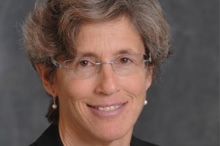
Evelyn Blumenberg is being honored as a Transportation Ladders of Opportunity Champion of Change.
I am honored to be a White House Champion of Change and join the many other impressive leaders in being recognized.
I have devoted my life’s work to alleviating poverty in the U.S. As the daughter of immigrants, I’ve seen first-hand the many obstacles families face in striving for economic mobility and stability. From an early age, I was committed to making life better for those struggling to fit in, to survive, to prosper. My early professional career included working with clients to obtain needed social services and organizing in low-income communities to effect economic policy change.
After many years of 80-hour weeks and sleeping on strangers’ couches, I returned to school at UCLA to get a Master’s degree in urban planning. My motivation was to gain a better understanding of the problems facing low-income communities and to expand my repertoire of tools needed to address these problems. UCLA’s Graduate School of Architecture and Urban Planning was the perfect home for my interests in social justice as many of the faculty and students shared similar passions and concerns. In fact, it was such a terrific home that I decided to stay on for a PhD.
My commitment to urban poverty research—and UCLA—persists. I am currently a Professor of Urban Planning in the UCLA Luskin School of Public Affairs. The concerns motivating my research are unchanged from my days as a community organizer, but today I play a different role. My teaching and research examine many dimensions of poverty and low-wage labor markets; it is through my published research and my terrific students that I seek to enable others to effectively organize for change.
Early in my research career, a colleague (Professor Paul Ong) and I examined the relationship between welfare usage and spatial access to employment opportunities. At about the same time, President Clinton signed the Personal Responsibility and Work Opportunity Reconciliation Act, reforming welfare into a time-limited program that requires welfare recipients to make rapid transitions into the labor market. Based on my earlier research, it seemed likely that access to transportation could play an important role in linking low-income women to job opportunities.
This insight prompted a series of research projects on the role of transportation in the welfare-to-work transition. Now, more than 15 years later, I continue to conduct research on the links among transportation access, employment, and poverty. Certainly, public transit is essential to the mobility of families with limited access to automobiles, particularly in cities. However, my research shows that for most low-income families, a car can be the difference between having a job or remaining unemployed. Cars enable relatively speedy travel over long distances, the ability to make intervening stops at day care centers and grocery stores, and safety when traveling at night.
My work showing the overwhelming benefits of car access for poor people has sometimes gotten me in hot water with environmentalists. I am deeply sympathetic with the efforts of many – including those in my own field of urban planning – who work tirelessly to reduce the environmental harms of car-dependence. Yet it shouldn’t surprise anyone that after a century of mostly car-focused urban and suburban development in the U.S., not having a car puts people at a considerable disadvantage – especially in suburban and outlying areas. In an era of growing income inequality, it would be unwise and unfair to pursue our environmental goals at the expense of those families who most need cars as one rung in their ladder of opportunity.
Dr. Evelyn Blumenberg is a Professor and Chair of Urban Planning at UCLA’s Luskin School of Public Affairs.
Learn more aboutConverting Our Fleet of Ships to Natural Gas
Posted by on May 20, 2014 at 2:37 PM EST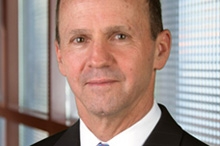
Anthony Chiarello is being honored as a Transportation Ladders of Opportunity Champion of Change.
I’m fourth generation in the shipping business and am in my 35th year in the maritime and logistics industry. To be honored for leading the movement to natural gas as a marine fuel is both exciting and humbling.
When we announced TOTE would be the first U.S. maritime company to convert our fleet of ships to natural gas, we knew we were in a unique position to create major change in the U.S. transportation industry.
Change is often fueled by challenge. The challenges posed to our company by the North American Emissions Control Area quickly became an opportunity to lead the industry to cleaner fuels beyond diesel. We’ve been bullish in our statements that we believe all new ships built for the U.S. domestic trades will burn liquid natural gas (LNG) as fuel. The response from other maritime companies has been nothing short of a tidal shift; orders for LNG ship construction accelerated after we announced plans to convert our ships that serve Alaska and build new ships, the first container ships in the world to be powered by LNG, for Puerto Rico.
As a Jones Act domestic carrier, we’re uniquely positioned to create real change in the supply conundrum -- availability of fuel is a big hurdle for most transportation sectors to change over to clean burning natural gas. Our regular service routes create enough of a steady demand to entice fuel partners to build liquefaction plants in our ports of call -- thus making LNG supply available to others in those markets. Supply in Jacksonville, Florida and Tacoma, Washington will serve the Southeast and Pacific Northwest with natural gas that can be used for ships, trucks, and rail.
As more maritime and transportation companies move to natural gas, the benefits will grow exponentially. The impetus was improving air quality, but we also know that moving to a domestically sourced fuel will increase reliability for our critical supply chain and the environmental and operational safety record of LNG is unmatched.
Despite 40,000 American ships and 500,000 mariners operating in our coastal and inland waterways, marine shipping is largely unseen as Americans are more disconnected from commercial U.S. ports. What most Americans don’t realize is that 90 percent of all consumer freight cargo moves on ships at some point in the supply chain. I’m hopeful that this award will bring some well-deserved recognition to the maritime industry as the most environmentally friendly, safest and economical mode of freight transportation.
Change of this magnitude requires strong support from partners and regulatory agencies: EPA, helping to facilitate engine conversions; the U.S. Coast Guard, working to create new regulations; Wärtsilä, designing new LNG engines for our ships; General Dynamics NASSCO, building a ship that’s never been built before; partners creating fuel infrastructure; and our parent company Saltchuk, which is both able and willing to invest to “do the right thing."
It is an honor to stand among the 2014 Transportation Champions of Change representing TOTE and Saltchuk. My colleagues and I are proud of our investments into new technology as a reflection of our commitment to the people and customers of Alaska and Puerto Rico. We’re equally pleased to help move the U.S. toward natural gas as a marine transportation fuel while providing the most advanced, safe, reliable service possible.
Anthony Chiarello is President and CEO of TOTE.
Learn more aboutFinancing a College Education
Posted by on May 16, 2014 at 3:19 PM ESTEd. note: This is cross-posted on Univision.com. See the original post here.
Over the past year I have had the opportunity to meet with students, parents, educators and community leaders across the country to discuss the importance of education. I have seen first-hand the remarkable impact leadership, engagement and a rigorous education can have, not only on a student but on an entire community. I have also seen the devastating impact associated with the lack of educational opportunity and access, in particular for families who strive to reach the middle class.
During a town hall discussion at a high school, I was reminded of just how critical access to information and awareness of the various financial aid resources that exist can be: in a room filled with 200 high school juniors and seniors, when asked how many had filled out the FAFSA™ form, only 3 hands went up. When asked how many were college bound, the same 3 hands went up. When asked why so many were not thinking of college, the question of affordability was at the forefront of their hesitation. While Latinos have made significant strides in high school completion and college enrollment, there remain challenging gaps that have resulted in only 15 percent of Latino adults graduating with a bachelor’s degree.
I know how important filling out the FAFSA is. For me, it was the difference between taking a minimum-wage job after high school, which was pretty typical in my community and pursuing a college education. Without knowledge of the financial resources available, in particular for minority and first-generation college goers, I would not have pursued my dream of getting a college degree – a degree that opened many doors and ultimately provided me the opportunity to advance the Obama Administration’s education agenda for the Latino community. That same knowledge barrier I faced during my childhood is still relevant to Latino students today. It is not necessarily just a lack of resources, but rather, a lack of awareness of resources available that contribute to the lower educational attainment levels for our community. Increasing awareness of financial aid is the first step to breaking down the knowledge barrier that impacts so many of our Latino students and families.
To help address these issues, the Initiative created the, “¡Gradúate! A Financial Aid Guide to Success” (Guide). The Guide will help Hispanic students and their families navigate the college application process and inform them about federal and non-federal financial aid, including public and private scholarship resources, available. Accessible in English and Spanish, the Guide also provides critical resources for undocumented youth and those granted Deferred Action for Childhood Arrivals. We recognize that the Guide is not a solution for all the barriers Latino students may face when exploring a college education, but it can help answer many questions they may have about the college application and financial aid process. I encourage everyone – students, educators, counselors, parents, and community and business leaders – to raise awareness about it wherever you can. Our Guide can only be as useful as the number of students who know about it!
Every child in our nation has promise; that potential should not be limited by a lack of knowledge about resources that could help cultivate and spur that child’s growth. Now, more than ever, we as a community and a nation need to emphasize to our students that there is help available for financing a college education, and that they too have a shot at the American dream. Give them that knowledge, and you might be surprised at the places (or offices) their educational journey might take them!
This blog post was written by Alejandra Ceja, White House Initiative on Educational Excellence for Hispanics Executive Director
Learn more aboutNational Security Advisor Susan Rice Visits Israel and the West Bank, and Joins the Embassy of Israel to Celebrate Israel Independence Day
Posted by on May 15, 2014 at 12:18 PM ESTAmbassador Susan Rice recently took her first trip to Israel since becoming the National Security Advisor. There, she met with senior Israeli officials, including President Shimon Peres, Prime Minister Benjamin Netanyahu, National Security Advisor Yossi Cohen, and participated in the U.S.-Israel Consultative Group meeting, to discuss the close security cooperation between our two countries. Ambassador Rice also visited Palmachim Air Force Base, where she spoke of the common bonds linking the United States and Israel:
Our two nations are forever bound by our shared history and our shared values, and every American dollar spent on Israel's security is an investment in protecting the many interests that our nations share—whether that's preventing rockets from terrorizing the Israeli people, defending against the growing ballistic missile threat in the region, or advancing our commitment to defend freedom and democracy.
Her full remarks at Palmachim Air Force Base can be found here.
Ambassador Rice also met with President Mahmoud Abbas of the Palestinian Authority in Ramallah during her visit. As she did in her meetings with Israeli officials, she emphasized the importance of each side managing the current situation in a way that reduces tensions and preserves space to pursue a two-state solution when both parties are prepared to take the decisions necessary to resume substantive negotiations. While we have come to a pause in the parties' talks, the United States believes the only way to achieve lasting peace is through direct Israeli-Palestinian negotiations that lead to two viable, independent states living side-by-side in peace and security.
Upon returning to Washington, Ambassador Rice delivered remarks at the annual Israel Independence Day Celebration hosted by the Embassy of Israel at the Mellon Auditorium. Her full remarks as prepared, marking the State of Israel's 66th birthday, follow:
Good evening everyone—erev tov—and happy Independence Day. This year, I've been fortunate to mark Yom Ha'atzmaut both here and in Israel, on my first trip there as President Obama's national security advisor.
I want to thank Ambassador Dermer for inviting me to join the party today. Ron and I have spent many hours together recently. I made Ron—I think this is the right verb—schlep to Israel for my trip last week. Along with many of the most senior officials from both our countries, we had busy days of close and productive consultations.
My most important meeting, once again, was with Prime Minister Netanyahu. In my previous job, we worked side-by-side in the muddy trenches of New York over the deeply flawed Goldstone Report and many other fights to protect Israel's legitimacy in UN forum after UN forum. On this, my most recent trip, I was proud to reaffirm and deepen the unprecedented security cooperation between our countries, and the prime minister and I had a very constructive conversation on a range of important issues.
I was also pleased, once again, to spend time with my Israeli counterpart, National Security Adviser Yossi Cohen— as well as with one of Israel's national treasures and one of the world's global treasures, President Shimon Peres. I know President Obama is looking forward to welcoming him back to the White House next month for the umpteenth time since his first visit to the White House under President Kennedy. To both your prime minister and your president, on behalf of the United States, I reiterated President Obama's personal and unwavering commitment to Israel's peace and security.
It was an excellent visit—and just the latest in a series of memorable visits to Israel. In particular, I was privileged to join President Obama, then still Senator Obama, on his visit to Israel in 2008—and I still remember the look of grim determination on his face when we saw the countless stacks of rockets that Hamas terrorists had fired from Gaza on the civilians of Sderot.
But the trip I remember most vividly, the one that forever sealed my affection for Israel, was my very first visit—back when I was 14 years old. My late father sat on the board of TWA – some of you will remember such airlines only from the "Mad Men" era. So, my Dad was able to take me and my younger brother on one of the first-ever flights from Cairo to Tel Aviv just after the Camp David accords. To this day, I remember walking the Old City, visiting the original Yad Vashem, hiking the stony path up Masada, bobbing in the Dead Sea, and learning by heart the Sh'ma, which speaks of God's oneness.
Like so many Americans, I have long felt the power of the enduring bonds between the United States and Israel. So at this reception to celebrate Israel's independence, I want to share a simple message: The United States will always be there for Israel. We will be there in those moments of silent sorrow. We will be there in the noisy bustle of normal daily life in the Jewish state. We will be there as friends and partners. And we will be there for Israel as supporters of peace, as champions of its legitimacy, and as defenders of your security.
I was particularly moved by President Peres's Independence Day message to the Israeli people this year. Thinking back to 1948 and the newborn state, he said, "I have to admit that our dream was too small when I see the reality that was born out of it." To not just build a state after the horror of the Holocaust, to not just become a free people in an independent and democratic state in the historic homeland of the Jewish people, but to actually exceed even their own dreams—it's a stirring testament to the faith and determination of the Israeli people, passed on l'dor va'dor, from generation to generation.
So, we will stay true to the cause of Israel's security. On Friday, I visited Palmachim Air Force Base and saw brave Israeli men and women, working alongside U.S. officers, using cutting-edge U.S. technology to ensure that Israel's air defenses remain unsurpassed. I got an up-close look at the tremendous Iron Dome and Arrow systems that have saved countless Israeli lives, with a U.S. investment that now totals nearly $900 million.
That commitment to Israeli and U.S. security also means, as we discussed again last week, that Iran must not get a nuclear weapon. As President Obama said in Jerusalem, "America will do what we must to prevent a nuclear-armed Iran." As the United States and our P5+1 partners engage in negotiations with Iran on a long-term, comprehensive agreement that resolves the world's longstanding concerns about Iran's nuclear program, we all have a responsibility to give diplomacy a chance to succeed. But America won't be satisfied by mere words. We will only be satisfied by verifiable action from Iran. Put simply: if we are not, there will be no deal. And, as these negotiations progress, we continue to consult closely with Israel every step of the way.
We will also stay true to the cause of peace — to working to end the conflict between Israelis and Palestinians. Even though we have reached a pause in the negotiations, we continue to encourage the parties to work and act toward a future of peace. It's worthwhile to recall the words of one the great civil rights leaders, Dr. Dorothy Height, who once said, "If the times aren't ripe, you have to ripen the times." So the United States will continue to do our part to help bring about the peaceful, hopeful future that both Israeli and Palestinian children deserve. Because, ultimately, the only path forward out of this tragic conflict is a secure, democratic, Jewish state living side-by-side in peace and security with a viable, independent Palestinian state.
That's our commitment—and it's the mighty oak that grew from the seed planted by President Truman on May 14, 1948, when he recognized the State of Israel, at 6:11 p.m. in Washington—just 11 minutes after David Ben-Gurion declared Israel's independence at midnight in Tel Aviv. The United States was the first country to recognize Israel, and we are still honored to count ourselves as first among Israel's friends. America's commitment to the peace and security of Israel has spanned generations. It spans political parties. And it is not and never will be negotiable.
Together, we reaffirm, in the words of Israel's Declaration of Independence, the "right of the Jewish people to be masters of their own fate, like all other nations, in their own sovereign State"—a state "based on freedom, justice and peace as envisaged by the prophets of Israel." And together, I hope that, decades from now, when we examine our efforts to forge a future of peace and security among Israel and its neighbors, we too will be able to look back at all that has been accomplished and say, with deep satisfaction, "our dream was too small."
Thank you so much.
Matt Nosanchuk is Director of Outreach on the National Security Council
Learn more about Foreign PolicyWhite House Chief of Staff Denis McDonough Addresses the American Jewish Committee
Posted by on May 14, 2014 at 6:02 PM ESTOn Tuesday, May 13, Chief of Staff Denis McDonough spoke at the American Jewish Committee (AJC) Global Forum. The AJC Global Forum is an annual event that brings a diverse group of Jews together from around the world to advocate for shared values.
His remarks highlighted the President’s priorities on the domestic front, focusing on immigration and the economy, and on foreign policy, reiterating the Administration’s unshakeable commitment to the State of Israel and to preventing Iran from obtaining a nuclear weapon.
His full remarks – as prepared for delivery – are below:
Minister Kasoulides, Minister Steinitz, distinguished guests, it’s an honor to represent the Obama Administration at the AJC Global Forum. I especially want to thank your President, Stan Bergman, and your longtime executive director, David Harris, for their leadership, and for inviting me here tonight.
Of course, I’m an obvious choice to join you this evening. After all, May is Jewish Heritage month, and who better to reflect on Jewish heritage than a guy named Denis McDonough?
But the truth is, so much of the heritage we celebrate this month is shared. My grandparents came to this country in search of a better life. But this country, more than anyplace else, held out a promise of opportunity: that here, universal human rights would be protected, and that no matter who you were or where you came from, you could make it if you tried.
For more than a century, the American Jewish Committee has helped our country keep alive that promise of opportunity for all. You’ve stood up for our shared values around the world. You’ve honored the American tradition of perfecting our union with hard work and sacrifice, and the Jewish tradition that teaches that while we are not obligated to finish that work, neither are we free to desist from it.
These ideas of shared responsibility, of obligations that are bigger than ourselves, are what motivate President Obama every day. Under his leadership, and thanks to the determination of the American people, an economy that lost about nine million jobs has now created 9.2 million private sector jobs. More families know the economic security of health care. Troops who were fighting two wars are coming home.
But we also recognize that our work is far from finished. That’s why President Obama has laid out an opportunity agenda to keep America’s founding promise alive for future generations. He’s fighting to create more good jobs with good wages, and a world-class education for the next generation. He’s fighting for equal pay for women, and a fair minimum wage for our workers.
And as the American Jewish Committee knows well, President Obama is fighting to fix a broken immigration system. I want to spend some time on this, beginning by thanking you – because for years, you have been a key partner in this effort. You have argued, loudly and forcefully, that our current immigration system is unfair to businesses, workers, and families alike. You’ve helped bring a moral dimension to this debate, one rooted in the biblical edict, “You shall not oppress a stranger, having been a stranger in the land of Egypt.” And last year, thanks in no small part to your hard work, Democrats and Republicans in the Senate came together and passed a bipartisan, common-sense immigration bill.
The question now is whether House Republicans will live up to that example. It’s clear what the right choice is, not just morally, but economically. A report by the Congressional Budget Office found that passing the Senate’s bipartisan immigration bill will grow our economy by more than 3 percent in one decade, and more than 5 percent in two decades. That means we could be looking at an extra $700 billion in our economy by 2023, and $1.4 trillion in 2033. And it will shrink our deficits by more than $150 billion over the next 10 years, and about $700 billion in the decade after that.
But as we’ve seen before, in today’s Washington, just because something makes sense doesn’t mean it will get done. So in addition to thanking you for helping us get to this point, I want to urge you keep making your voices heard. Make sure our lawmakers know what’s at stake. Ask them to put aside politics and do what is right.
President Obama believes there is still time to make reform a reality. Just today, he invited law enforcement officials from across our country who know how important this is to come to the White House. So I promise you that as you continue your efforts to fix our broken immigration system, your president will be with you every step of the way. Because he believes that ultimately, this issue is about much more than politics – it’s about our responsibility to keep alive the basic values we share.
Of course, even as he works to make real our country’s promise of opportunity for all, President Obama recognizes that our responsibilities don’t end at home – and those other responsibilities are what I would like to close with today. Part of what makes America great is that we stand by the countries that share our values around the world. That’s why throughout its history, the State of Israel has had no greater friend than the United States of America.
The United States is proud to be the first country to recognize the existence of a Jewish State – just 11 minutes after Israel’s independence was declared. Today, we celebrate a diverse, democratic ally, a “start-up nation” where entrepreneurship thrives. The unbreakable bonds between our two countries are as strong as ever.
And as President Obama put it last year at the United Nations General Assembly, “the United States will never compromise our commitment to Israel’s security, nor our support for its existence as a Jewish state.” Time and time again, he has stated his firm conviction that Israel has a right to defend itself, and to maintain its qualitative military edge.
Over the last five and a half years, President Obama has backed up those words with action. Today, the cooperation between our militaries and intelligence services has never been stronger. At this very moment, there are Israeli children sleeping more soundly because of the Iron Dome defense system that America invested in.
And with so much tumult across the region—including Egypt and Syria—we are consulting closely with our Israeli partners every step of the way, as we saw again in Susan Rice’s visit to Israel last week. Susan led the U.S. delegation of the U.S.-Israel Consultative Group, a dialogue launched several years ago. The ICG, as we call it, is a first of its kind, a spot where we consult on our shared threats, including from Iran, with Israel. It has been led by the President’s National Security Advisors, Tom Donilon and now Susan. This intensive and candid discussion reflects the unprecedented level of cooperation between our two countries, and President Obama’s commitment to Israel’s security.
And along with many other important pieces of business she conducted in Israel last week, Susan reaffirmed the President’s clear policy: the United States is committed to prevent Iran from acquiring a nuclear weapon. Over the last few years, we have rallied the world behind unprecedented sanctions that have helped to bring Iran to the negotiating table. Today—for the first time in a decade— progress on Iran’s nuclear program has been halted and key parts have been rolled back. The IAEA has confirmed that Iran is meeting its commitments under the joint plan of action.
Today we started another round of tough negotiations among the Iranians on one side and basically the rest of the world on the other. We are engaged in serious, substantive negotiations aimed at reaching a comprehensive solution that addresses the world's concerns with Iran’s nuclear program. There’s no doubt that significant gaps remain and it is far from certain that we can reach a final agreement that sufficiently addresses our concerns. But this is a chance to resolve this issue diplomatically, peacefully. And throughout these focused negotiations, our bottom line has not changed and will not change. A nuclear-armed Iran would be a grave danger to the United States, to Israel, and to the world, and we are committed to doing what we must to keep Iran from acquiring a nuclear weapon.
Even as we pursue a resolution to the Iranian nuclear issue, we remain focused – every single day – on countering Iran’s support for terrorism, and its destabilizing efforts in the region. That includes our unprecedented support for Israel’s security, as well as the security of our Gulf Partners. That includes our efforts to strengthen the Syrian opposition, and to apply pressure on the Assad regime. And that includes steady and coordinated efforts to expose Iranian support for terrorism; to stop the flow of weapons to terrorist groups like Hizbollah and Hamas; and to maintain our robust sanctions on Hizbollah and Iranian sponsorship of terrorist activity.
Moreover, as President Obama said in Jerusalem last year: “Those who adhere to the ideology of rejecting Israel’s right to exist … might as well reject the earth beneath them or the sky above, because Israel is not going anywhere.” And with the question of Israel’s existence off the table, there is another question we must ask ourselves: What will Israel’s future hold?
It was America’s commitment to Israel’s future—our abiding belief that Israelis and Palestinians deserve a future of peace and security—that guided our efforts over the past year. Early in those talks, Secretary of State Kerry came here, to the AJC Global Forum, because your organization understands that peace and security are inextricably linked. In the end, the interests of a Jewish State of Israel require two nations that can live in peace. In the face of an unsustainable status quo, a two-state solution is not just desirable – it is necessary, for both sides.
Today, we are profoundly grateful to Secretary Kerry, and to organizations like AJC, for the extraordinary efforts made over the past year. No nation has done more to stand with the parties—Israelis and Palestinians—in their search for peace than the United States of America. No nation. And though talks may be suspended, President Obama has been very clear—the United States will never waver in our commitment to a just and lasting peace. Both Israelis and Palestinians face hard choices. Both must make difficult decisions. And only Israelis and Palestinians can make the compromises that are necessary for two states to live side-by-side in peace and security.
But just because peace is difficult doesn’t mean we can stop trying. As President Obama reminds me often, “Hard things are hard.” Fixing a broken immigration system is hard. Bringing an end to a decades-old conflict in the Middle East is hard. But our history, our heritage, teaches us that hard things are possible. And with your help, I believe that we can leave behind for our children a country that keeps alive its founding promise of opportunity for all, and a world filled with prosperity and peace.
Thank you very much.
Matt Nosanchuk is Director of Outreach on the National Security Council.
Celebrating Champions for Health in the AAPI Community
Posted by on May 13, 2014 at 1:02 PM ESTFor too long, many members of the Asian American, Native Hawaiian, and Pacific Islander community have lacked access to quality, affordable health care. Consider these statistics:
- One in four Korean Americans is uninsured;
- Nearly 40% of Asian American women over the age of 40 don’t get routine mammograms;
- One in four Asian Americans over the age of 18 – and one in three Native Hawaiians and Pacific Islanders – has not seen a doctor in the last year.
The Affordable Care Act provides an opportunity to provide nearly two million uninsured Asian Americans and Pacific Islanders with quality, affordable health care. In addition, eight out of ten uninsured AAPIs may be eligible for financial assistance through Medicaid, CHIP, or tax credits in the Health Insurance Marketplace. That’s why, according to a report released by HHS last week, of enrollees in the Marketplace, 8% were Asian American, Native Hawaiian, or Pacific Islander.
Across the country, organizations and individuals stepped up to do their part to educate the AAPI community about the Affordable Care Act. And last month, the White House and U.S. Department of Health & Human Services (HHS) honored the following 11 advocates and community leaders as “Champions of Change” for their work to educate Asian Americans and Pacific Islanders about the Affordable Care Act:
- Teresita Batayola, CEO, International Community Health Services (Seattle, WA)
- Sophie Duong, CEO/President, Nationwide Viet Radio (Falls Church, VA)
- Howard J. Eng, Assistant Professor and Director of the Southwest Border Rural Health Research Center, The University of Arizona College of Public Health (Tucson, AZ)
- Minja Hong, Program Coordinator of Healthcare Access Services, Korean Community Services of Metropolitan New York (New York, NY)
- Priscilla Huang, Action for Health Justice (Washington, DC)
- Amy Jones, Director of Health & Social Services, Southeast Asian Mutual Assistance Association Coalition, Inc. (Philadelphia, PA)
- Manjusha P. Kulkarni, Executive Director, South Asian Network (Artesia, CA)
- Ranjana Paintal, Program Manager, Asian Health Coalition of Illinois (Chicago, IL)
- Cathy Phan, Affordable Care Act Program Coordinator, Asian American Health Coalition - HOPE Clinic (Houston, TX)
- Bruce Thao, Director of Programs, Hmong American Partnership and Hmong National Development (St. Paul, MN)
- Cathy Vue, Program Coordinator, Asian Services In Action, Inc. (Cleveland, OH)
Gautam Raghavan is Associate Director of the Office of Public Engagement.
Learn more about Health CareServing AAPI Communities in the Midwest
Posted by on May 13, 2014 at 12:54 PM EST
Ranjana Paintal is being honored as a Health in the AAPI Community Champion of Change.
I am honored to be chosen along with my fellow counterparts as a Champion of Change. Over the last year, I have served as program manager for the Asian Health Coalition’s partnership consortium around education, outreach and enrollment to underserved Asian American and Pacific Islanders (AAPIs) communities in Illinois, which has been made possible through the Affordable Care Act. My participation at the local level has been fulfilling both on a personal and professional level in this landmark national effort. However, this award magnifies this sense of fulfillment because it furthers one of our agency’s most significant goals- to bring attention to the challenges of the marginalized immigrant and refugee communities in Illinois.
“No community should be invisible to its government” said President Barack Obama when he unveiled his vision to meet the growing and unmet needs of this country’s AAPI community a few years ago. These words have been central to our mission at the Asian Health Coalition as many of the immigrant communities that we work with have historically lacked health insurance and access to basic preventative care.
Illinois is home to the 5th largest AAPI population in the nation and also the largest in the Midwest region. As more than two-thirds of AAPIs in Illinois are immigrants, the passage of the Affordable Care Act presents an amazing opportunity to address the needs of the communities that our consortium serves and allows them to have access to health care services which we regard as a basic human right.
Our consortium of community-based organizations and their certified navigators have been cultural brokers in the education, outreach and enrollment of their community members. Right from the beginning, our navigators educated each of the unique populations that they served about the Affordable Care Act and how it could help them, and then followed up to ensure that those needing assistance in the enrollment process received the help that they needed. Culturally sensitive and language appropriate educational materials were created with feedback from our community partners; ethnic news media outlets, and key stakeholders including community leaders were educated to help spread the word within their networks. As a result, these communities had access to simple and jargon-free information in their native language, were encouraged to sign up from those they trusted most (faith leaders, community leaders and elders), and had trustworthy spokespeople from within their community who they could rely on to navigate them through the enrollment process. Thanks to the efforts of my colleagues and our partners, we had an incredibly successful enrollment period, surpassing our enrollment goals and educating thousands of individuals.
As a mother of 2 young children it gives me peace of mind to know that with the help of my health insurance I am better able to take care of myself so that I can take care of them. I look forward to the day when every parent in this country can say this, no matter what community they live in, what language they speak and where they are from. I’m proud that I was able to play a role in this historic initiative that will hopefully bring us to that day.
Ranjana Paintal is Program Manager for Asian Health Coalition of Illinois
Learn more about Health CareMaking Health Care a Reality
Posted by on May 13, 2014 at 12:52 PM EST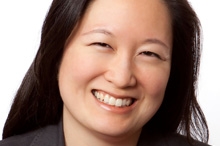
Priscilla Huang is being honored as a Health in the AAPI Community Champion of Change.
Of the over 2 million Asian Americans, Native Hawaiians and Pacific Islanders (AAPI) who are uninsured, Bishnu Kamar was just one of the many. She was one of the many people who lived in fear of what might happen when they get sick and one of the many who could not afford quality coverage no matter how hard she worked as a social worker in her Philadelphia community.
Through the Affordable Care Act, Bishnu was able to get covered and it now offers new opportunities for better health for millions of other AAPIs just like her. This is why Action for Health Justice was created. It was co-founded by my organization, the Asian & Pacific Islander American Health Forum, the Association of Asian Pacific Community Health Organizations, Asian Americans Advancing Justice | AAJC and Asian Americans Advancing Justice | Los Angeles.
We launched this national, coordinated initiative because we wanted to ensure the Affordable Care Act was not just a promise, but a reality for AAPIs. With communities spanning 50 different ethnicities and speaking more than 100 different languages, the only way to ensure success was to develop culturally and linguistically tailored outreach strategies.
Together, we tackled the challenge head-on. We leveraged the expertise and reach of national partners and the collective forces of more than 70 community-based organizations and health centers, implementing a multi-part strategy rooted in and driven by community need. On the ground in 21 states, we channeled our energies to where assistance was most needed: immigrant families facing complex eligibility questions and those with language barriers. Most importantly, we knew that providing education would not be enough. To be the most effective, we combined education through trusted messengers with new resources, coordinated efforts tailored specifically to help limited-English-proficient Americans get covered and worked closely with enrollment assisters to monitor and troubleshoot the enrollment process.
From providing tens of thousands of AAPIs with information, to large town halls in California and beyond, we have gone to where our communities live, work, play and worship to promote the first open enrollment period. For many of the people we helped, Action for Health Justice partners were the first and only source of assistance they received.
Our work would never have been possible without the tireless efforts of our community partners and health centers. When I hear coverage stories like Bishnu’s, or the many others Action for Health Justice helped, the Affordable Care Act becomes a little more real. With the first enrollment period behind us, we at Action for Health Justice remain committed to educating AAPIs and all communities about their health care options now and beyond. Action for Health Justice is a testament to the power and strength that can come from collective action. I am humbled to be a part of that and honored to make health care a reality for so many.
Priscilla Huang is Policy Director for the Asian & Pacific Islander American Health Forum, an organization that co-founded Action for Health Justice along with the Association of Asian Pacific Community Health Organizations, Asian Americans Advancing Justice | AAJC, and Asian Americans Advancing Justice | Los Angeles.
Learn more about Health Care
- &lsaquo previous
- …
- 30
- 31
- 32
- 33
- 34
- 35
- 36
- 37
- 38
- …
- next &rsaquo


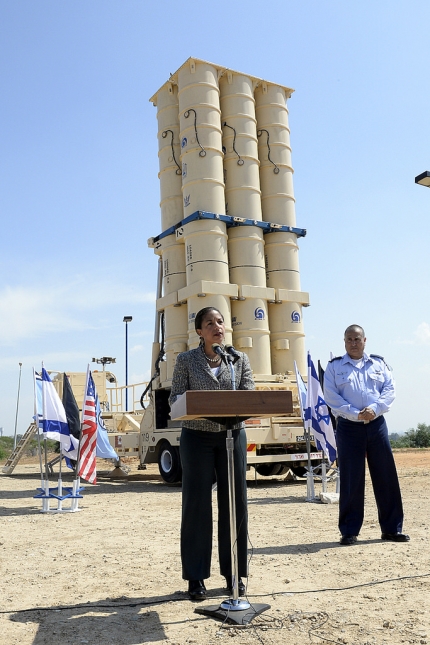
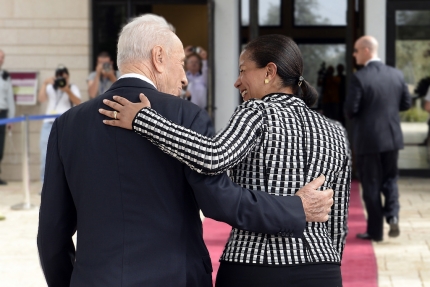
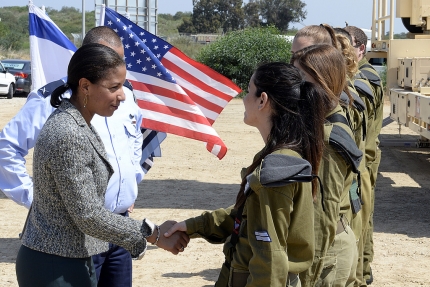
Twitter